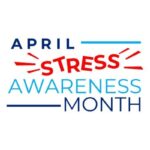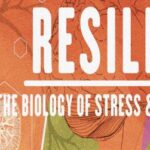Benzodiazepines
Brief Description
 Benzodiazepines (or benz) such as clonazepan (Klonopin), diazepam (Valium) and alprazolam (Xanax), are sometimes prescribed to treat anxiety, acute stress reactions, and panic attacks. The more sedating benzodiazepines such as triazolam (Halcion) and estazolam (ProSom) are prescribed for short-term treatment of sleep disorders. Usually, benzodiazepines are not prescribed for long term use because of the risk for developing tolerance, dependence, or addiction.
Benzodiazepines (or benz) such as clonazepan (Klonopin), diazepam (Valium) and alprazolam (Xanax), are sometimes prescribed to treat anxiety, acute stress reactions, and panic attacks. The more sedating benzodiazepines such as triazolam (Halcion) and estazolam (ProSom) are prescribed for short-term treatment of sleep disorders. Usually, benzodiazepines are not prescribed for long term use because of the risk for developing tolerance, dependence, or addiction.
Continued use can also lead to physical dependence and withdrawal when use is abruptly reduced or stopped. Because all CNS depressants work by slowing the brain’s activity, when an individual stops taking them, there can be a rebound effect, resulting in seizures or other harmful consequences. Withdrawal from benzodiazepines can be problematic. Withdrawal from barbiturates can have life-threatening complications. Therefore, someone who is thinking about discontinuing CNS depressant therapy or who is suffering withdrawal from a CNS depressant should speak with a physician or seek immediate medical treatment.

Effects
 Benzodiazepines induce a state of relaxation and sedation. Alertness and concentration are reduced due to depression of the CNS (central nervous system), and coordination is negatively affected thus the caution on prescription bottles that users avoid operating a motor vehicle or other machinery. Intoxication with benzodiazepines is very similar to alcohol intoxication with slurred speech, short-term memory loss, impulsivity, poor judgment, stupor, and unconsciousness at higher levels of ingestion.
Benzodiazepines induce a state of relaxation and sedation. Alertness and concentration are reduced due to depression of the CNS (central nervous system), and coordination is negatively affected thus the caution on prescription bottles that users avoid operating a motor vehicle or other machinery. Intoxication with benzodiazepines is very similar to alcohol intoxication with slurred speech, short-term memory loss, impulsivity, poor judgment, stupor, and unconsciousness at higher levels of ingestion.
Benzodiazepines & Opioids
Benzodiazepines are a frequent alternative drug of abuse for opioid addicted individuals. When taken together, opioids and benzodiazepines can be a lethal combination due to severe depression of the central nervous system and respiration.
A significant number of overdose deaths have occurred across the United States in recent years as a result of individuals mixing benzodiazepines and prescription opioids. These should never be combined unless explicitly directed by a physician and closely monitored for potential oversedation.
Source: NIDA (National Institute on Drug Abuse)










